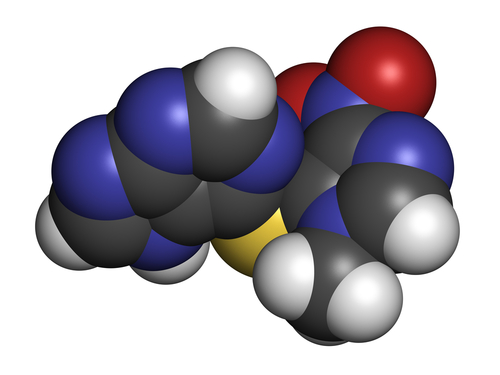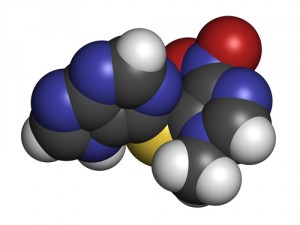Why MS Patients Should Know What Glatiramer Acetate Therapy Is

 A new study, entitled “The Effect of Glatiramer Acetate Therapy on Functional Properties of B Cells From Patients With Relapsing-Remitting Multiple Sclerosis” published online in JAMA Neurology, reports the effect of Glatiramer acetate therapy on B cells in relapsing-remitting multiple sclerosis (MS) patients. This first-of-its-kind study could lead to novel B cell therapy drug development that could represent a new generation of RRMS drug.
A new study, entitled “The Effect of Glatiramer Acetate Therapy on Functional Properties of B Cells From Patients With Relapsing-Remitting Multiple Sclerosis” published online in JAMA Neurology, reports the effect of Glatiramer acetate therapy on B cells in relapsing-remitting multiple sclerosis (MS) patients. This first-of-its-kind study could lead to novel B cell therapy drug development that could represent a new generation of RRMS drug.
Multiple Sclerosis is an inflammatory demyelinating disease of the central nervous system. The majority of patients diagnosed with Multiple Sclerosis have Relapsing-Remitting Multiple Sclerosis. Increasing evidence associates dysregulated B-cell (a type of immune cell which main function is to produce antibodies) proliferation and cytokine production as part of the pathology of the disease, making this new study germane to the possible development of future treatment strategies.
In this study, the authors proposed to evaluate whether Glatiramer acetate therapy normalizes B-cell proliferation and cytokine production in MS patients.
A total of 44 patients with MS being followed at The University of Texas Southwestern Medical Center’s MS clinic were divided into two groups — a group with no treatment for at least three months (n=22) and a group treated with glatiramer acetate therapy, (n=22) for at least three months. Samples from a control group of healthy individuals were obtained from either HemaCare (Van Nuys, California) or Carter Blood Bank (Dallas, Texas).
[adrotate group=”4″]
The authors found that in a less-than-32-month period of glatiramer acetate therapy, MS patients exhibited an increase in the production of anti-inflammatory cytokine, IL-10, and a significant decrease in IL-6, a pro-inflammatory cytokine. Additionally, B cells’ proliferation and antibody production was also successfully altered with glatiramer acetate therapy.
The researchers propose that glatiramer acetate’s therapeutic benefit is therefore associated with its regulatory impact of B cells’ behavior in MS patients.






